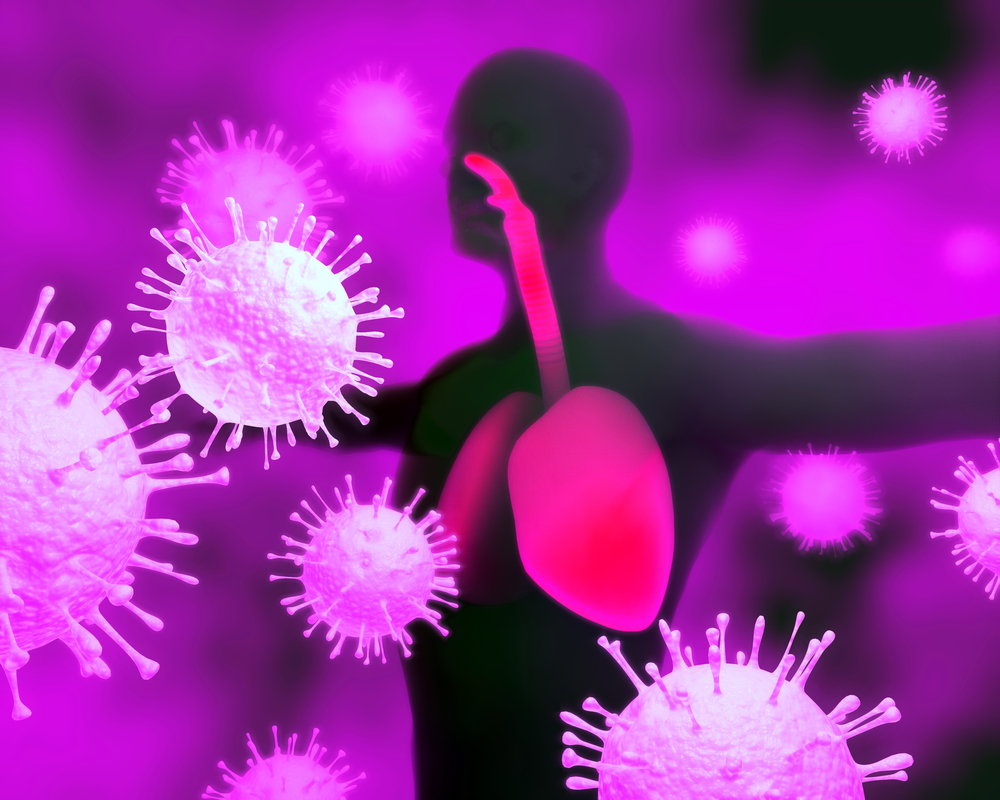Immune Response to Fungal Infection Seen to Drive Lung Fibrosis in Animal Study
Written by |

Although the immune system works to fight pathological agents that invade the body, preventing disease, certain immune cells respond in ways that can grievously aggravate health conditions. A prime example is a damaging immune response that causes pulmonary fibrosis (PF) in people infected with the Paracoccidiodes fungi, according to a study published in the journal PLoS One.
The study, “Depletion of Neutrophils Promotes the Resolution of Pulmonary Inflammation and Fibrosis in Mice Infected with Paracoccidioides brasiliensis,” conducted by a group of Colombian researchers, also suggests a way of treating the fibrosis that results from such infection.
Several agents trigger the development of PF, such as environmental toxins, radiotherapy and chemotherapy, as well as pathogens like the Paracoccidiodes fungi. The infection caused by these organisms is called paracoccidioidomycosis (PCM), and is characterized by an inflammatory response with progressive damage to lung tissue, promoting pulmonary fibrosis and the loss of respiratory function in about half of all affected patients.
In the chronic stages of P. brasiliensis infection, a particular type of immune system cell, called neutrophils, seem to be the predominant component of the inflammatory response triggered by the fungus. Although this response is part of the process of getting rid of the fungus, it also ends up causing lung fibrosis.
Researchers wanted to better understand the role of neutrophils during the chronic stages of pulmonary PCM, as well as in fibrosis development and tissue repair. To do so, they induced PCM in mice using P. brasiliensis fungus and, one month after the onset of the infection, they gave the animals a solution containing an antibody that specifically recognizes neurotrophils and stops their inflammatory activity. Antibody therapy was then given every two days for the following two weeks.
Eight and 12 weeks after the beginning of the infection, researchers observed that the antibody therapy worked to lower the immune system’s response, as determined by a decrease in the expression levels of several pro-inflammatory factors in the lungs of mice, such as TGF-β1, TNF-α, IL-17, MMP-8 and TIMP-2. Neutrophil depletion was also associated with a significant reduction of fungal burden in all organs assessed (lung, liver and spleen), a reduction in the inflammatory response, and improved pulmonary architecture in mice infected with P. brasiliensis.
Taken together, these results suggest that depletion of neutrophils results in reduced lung fibrosis, and that these cells can be future therapeutic targets in the treatment of PF induced by P. brasiliensis.
“The … results indicate that neutrophil depletion was associated with a better control of infection and decrease of the … inflammatory response and fibrosis during the chronic stages of experimental PCM, suggesting that [neutrophils] exert a harmful role in the immune response to P. brasiliensis infection and could influence the development of fibrosis in affected individuals,” the researchers concluded. “Thus, neutrophil could be considered as a possible therapeutic target in PCM.”






